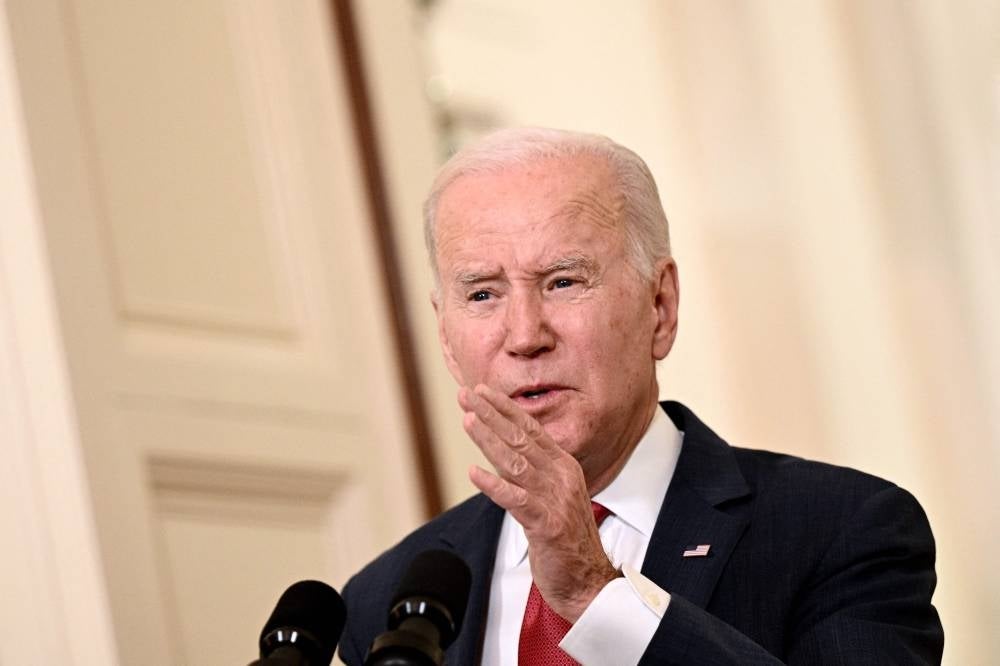Respecting Marriages: Would value imposition prevails over strategic interest?
NIK LUQMAN WAN ZAINODDIN
Just last week, the President of the United States, Joe Biden, signed a legislation called Respect for Marriage Act, which codifies protection for same-sex and interracial couples.
Interestingly, the bill was passed with bipartisan support in both the House and Senate, a rare occasion in America’s politics.
Indeed, in the words of Biden, the measure is considered a “vital step toward equality, liberty, and justice” for everyone in the United States.
But what exactly the bill entails?
For what it is worth, the Respect for Marriage bill requires states in the US to honor all marriages, including for same-sex and interracial couples, regardless of sex, race, ethnicity, or national origin.
In other words, with the bill in force, it would disallow federal and state governments from denying the validity of such unions.
But the elephant in the room is indeed the same-sex marriage proposition, which is considered taboo in other parts of the world.
Take the recently concluded Qatar’s World Cup, which nonetheless was a magnificent success, as an example.
The rainbow-colored armband, dubbed as OneLove, signifies the promotion of tolerance, diversity, and human rights, including support for transgender rights, and was insisted to be donned during world cup matches.
However, in respect to the rules and regulations set out by Qatar, FIFA imposed sporting sanctions on players who donned the rainbow-colored armband.
Indeed, a particular viewpoint of respecting other cultures and values is needed as it is of utmost importance.
In the international relations realm, imposition of values did take place, such as issues on human rights.
By and large, taking into account of Southeast Asia’s experience, the region has its own version of human rights practices.
But due to the overarching strategic interests that drive the US to further deepen its engagement with the Southeast Asia region, the US’s vocal criticism over human rights issues has been watered down.
In fact, when Asean leaders convened in Washington D.C. for the Asean-US special summit in May this year, both sides committed to strengthening their ties by deepening cooperation on multiple fronts.
On the political-security front, the US is determined to be more involved in the discussion concerning the South China Sea.
In the view of the US, its further involvement in this area is important so that the US has a role in overseeing the security and safety of the sea lanes. This is also given the fact that trillions of dollars in global trade passes this strategic waterway.
Economically, while China’s trade links with Southeast Asia are more substantial, the US wanted to expand its economic ties with the region further, including promoting the Indo-Pacific Economic Framework (IPEF), in a bid to build a rules-based economic order.
And a testament to this deepening cooperation is when the US is also accorded an elevation to strategic diplomatic status, to which only Australia and China are accorded to such stature by Asean.
Thus, despite the Respect for Marriage Act in place, it is unlikely to be a thorny issue in Asean-US relations.
On the contrary, imposition of value had veered off the Asean and European Union (EU) ties, in hindsight.
Even though the EU is among Asean’s oldest dialogue partners and was conferred status as such back in 1977, both sides have held differences in approaching human rights issues, usage of sanctions, and sustainability agenda; thus, their cooperation has had a rather roller-coaster journey.
Their relationship also went into an acrimonious phase soon after the Treaty of Maastricht and Common Foreign and Security Policy (CFSP) in place, in which the obligation and aspiration of the treaty and policy were to develop and consolidate democracy, the rule of law, and respect for human rights.
For instance, when Burma, as Myanmar was formerly known, was admitted into Asean in 1997, Asean was met with fierce condemnation. Myanmar was branded as home to widespread human rights abuses and stood in contrast to the EU’s aspiration. Then, Asean-EU relations reached their low point.
And as argued by Yeo Lay Hwee in the Asean-EU Partnership: The Untold Story, both regional blocs need to avoid the “singularity trap,” which would derail the broader strategic need for engagement.
The issues of human rights and trade bans, considered traps, need to be avoided as they would set the Asean-EU cooperation at a low.
But fast-forward, there are mounting calls for both sides to avoid the “singularity trap.” And both Asean and the EU have been scaling up efforts to deepen engagement since then.
The capacity building which contributes towards integration programmes such as Asean Programme for Regional Integration Support (APRIS), and now the Asean Regional Integration Support from the EU are also good initiatives to expand ties.
In 2015, the EU issued a Joint Communication entitled “The EU and ASEAN: A Partnership with a Strategic Purpose.” In the document, the EU acknowledged that the bloc has strategic interest and needs to strengthen its relationship with Asean because “Asean is at the heart of the efforts to build a more robust regional security order in the wider Asia-Pacific.”
As latest as last year, the EU released its Indo-Pacific strategy, which aims to increase engagement in economic, security, and connectivity domains. Interestingly, the Indo-Pacific region is defined from the east coast of Africa to the Pacific Island states, with the Southeast Asian region or Asean in the mid-way.
To put things into perspective, it is fair to say that imposition of values might be subsumed to allow policy space for states to pursue broader strategic interests. And this is seen to be a pragmatic approach and, indeed, the way forward, as states realise that only collective efforts and strong partnerships could contribute towards the promotion of peace and stability as well as economic development.
Nik Luqman is an analyst and writer focused on Southeast Asia. Currently, he is attached to the Institute of Malaysian and International Studies, National University of Malaysia, as an Associate Fellow. He tweets @Nluqman
The views expressed in this article are the author's own and do not necessarily reflect those of Sinar Daily.
Download Sinar Daily application.Click Here!














